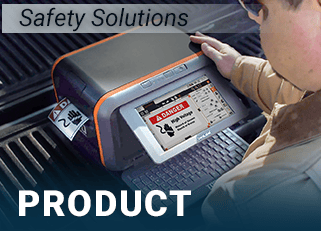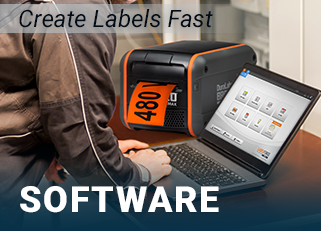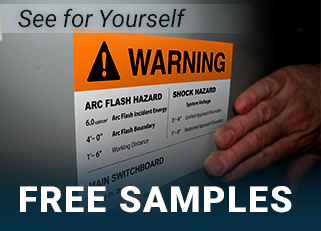Resource Navigation
Kaikaku
03
February,
2023
4 MINUTE READ

Kaikaku is the Japanese word for "radical change." It is a lean method used to make fundamental, significant, radical changes in the workplace. Unlike Kaizen, which uses slow, continual, small changes, Kaikaku involves making one-time, large, major changes
Kaizen and Kaikaku are not mutually exclusive. They both have their place in an organization's arsenal of lean tools. Kaikaku is a tool that is used in addition to Kaizen, not instead of Kaizen. In many cases Kaikaku is used initially, and the Kaizen provides the long-term transformation.
In some respects Kaikaku is similar to a Kaizen blitz, but on an even larger scale and making more fundamental changes. These three approaches to improving performance could be characterized as:
- Kaizen ? slow, gradual change of an existing practice, system, or process.
- Kaizen Blitz ? rapid change of a targeted aspect of a system or process.
- Kaikaku ? complete upgrade or replacement of a system or process
Typically Kaikaku and Kaizen will be applied. Kaikaku is intended to bring about radical change, and Kaizen is to sustain that change and make further improvements.
10 Commandments of Kaikaku
Using Kaikaku is like setting off an explosion in the workplace. It is revolutionary. It breaks existing paradigms and throws out old ways of thinking. It is focused on achieving radical improvement over a short time period. A good place to start understanding Kaikaku is with Hiroyuki Hirano's Ten Commanments of Kaikaku. They are:
- Throw out the traditional concept of manufacturing methods.
- Think of how the new method will work; not how it won't work.
- Don't accept excuses.
- Totally deny the status quo, be ready to start new.
- Don't seek perfection. A 50% implementation rate is fine as long as it is done on the spot.
- Correct mistakes the moment they are found.
- Don't spend money on Kaikaku.
- Problems give you a chance to use your brains.
- Ask "why" five times.
- Ideas from ten people are better than one person's knowledge.
- Kaikaku knows no limits.
Most of these commandments make sense just from reading them, but what about the eighth commandment. What does "Ask why five times" mean?
Kaikaku ? Five Whys
The "Five Whys" is a simple technique for getting at the root cause of a problem. It involves asking "why" until the question can no longer be asked and the answer is found. Typically this involves asking "why" five times, but that number may vary. Let's look at an example from the book "Kaikaku: The Power and Magic of Lean : a Study in Knowledge Transfer" by Norman Bodek:
Dr. Bills, the CEO of Granville-Phillips, asked Dr. Shingo to please look at their manufacturing process to see if he could help them become more efficient.
He loved to use the Five Whys, asking why five times. An example:
'Why do we get soldering misconnects?' an engineer asked Dr. Shingo. His answer was a question.
'Why doesn't the solder not 100% connect the pins to the board 100% of the time?'
'Sometimes the solder does not melt properly,' an engineer would answer.
'Why does that happen?' asked Shingo.
'Maybe the solder's temperature varies,' another said.
'Why would the the temperature vary?' Shingo would ask.
At first the engineers stared into blank space until one said, 'Something is causing the temperature to vary!'
'Why does that happen, what could cause the temperature to vary?' Shino asked.
A bright light went on in the head of one engineer who said, 'Maybe since the un-melted solder drops into the solder bath in chunks, not smoothly, the temperature drops at that moment, causing mismatches when the next board is entered into the bath.'
Notice that Dr. Shingo did not need to know how the soldering process worked. He just kept asking why. The final question was, "What can you do to prevent the solder from dropping in so drastically?" and a solution to the root cause of the problem was found.
Using the Five Whys is a very simple technique that is very powerful in producing results.
Kaikaku ? Busting the Budget Roadblock
As soon as someone says we are going to throw out the existing, and redo everything from scratch, dollar signs start spinning through management's heads. Starting over? This is going to be expensive!
That's why the sixth commandment of Kaikaku is important: "Don't spend money on Kaikaku."
Kaikaku isn't about buying lots of new, high-tech machines and equipment. Kaikaku is about a new way of thinking and a new way of doing things. For example, by redesigning a product, a step in the manufacturing process might be eliminated. What is important are the results, and in many cases the same results can be achieved with modest costs as will be achieved by replacing equipment with all new high-tech machines.
The point is that good ideas deliver more value than spending lots of money. That's why more than half of the Ten Commandments of Kaikaku are people-oriented. They are about freeing people to use their experience, knowledge, and creativity to come up with new ideas and better ways to get things done.
Kaikaku ? the Need for Visual Communication
Kaikaku means change-in many cases radical change. For those responsible for making the product, that means changing old habits and adjusting to new situations. It also may mean new or different workplace hazards. Having appropriate warning signs and labels, and having them in place when they are needed is critical. Kaikaku-driven change can be rapid, and having to wait for new safety signs to arrive is an unnecessary roadblock. That's because, with a DuraLabel custom label printer in your maintenance shop, the needed signs and labels can be made in minutes-even when custom messages are required.
With DuraLabel there a variety of types of supplies available. That means you can always have the right supply to get the job done right, no matter what types of changes are made. Check out DuraLabel by calling 888-326-9244 today. Be sure to ask about the special money-saving DuraLabel kits.
RELATED RESOURCES

Quality Control In Manufacturing
In manufacturing, quality control is a process that ensures customers receive products free from defects and ...
Read
A3 Problem Solving
What is A3, and what does it have to do with problem solving? A3 is a standard paper size, roughly 11"x17" - ...
ReadSIPOC
SIPOC is an acronym for Suppliers, Inputs, Processes, Outputs, and Customers and shows how these business ...
Read.png)


